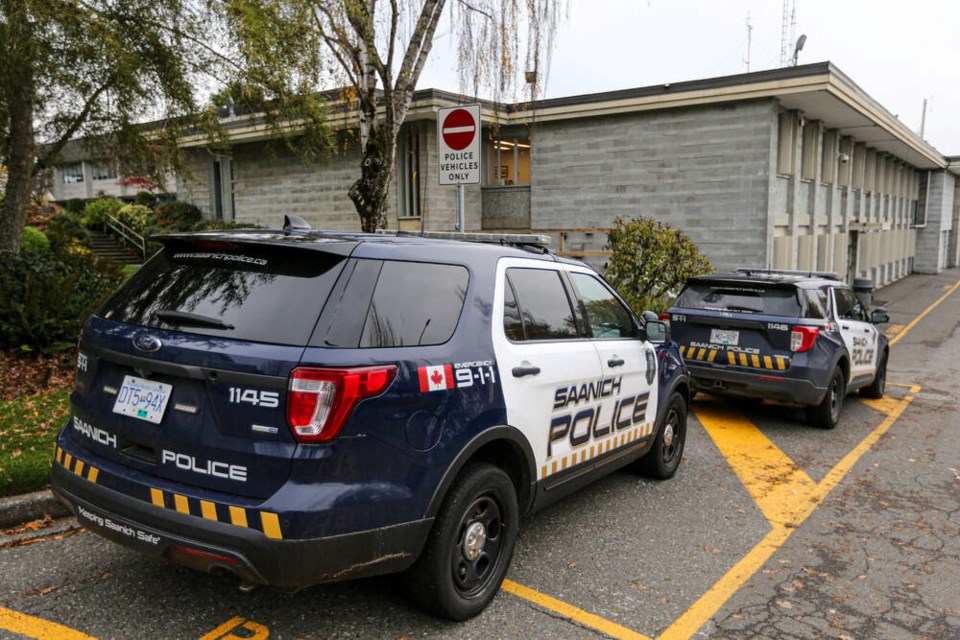A Saanich police officer who falsely recertified the department’s drug-recognition experts has been retroactively dismissed and had his rank reduced for 18 months.
The officer had retired prior to a discipline hearing, according to the 2020-2021 annual report of the Office of the Police Complaint Commissioner.
In May 2018, Saanich police asked the commissioner to order a public trust investigation in the case. The subsequent investigation found that between 2014 and 2016, the officer knowingly signed 14 official documents that contained misleading information. It found his actions amounted to deceit, neglect and discreditable conduct, and the dismissal will be reflected on his employment record.
A drug recognition expert (DRE) is trained and certified to administer a 12-step systematic, standardized procedure widely used throughout the U.S. and Canada to assess suspected drug-impaired drivers, according to the Canadian Centre on Substance Abuse and Addiction. On the basis of the evaluation, the officer can demand the suspect provide a sample of blood, urine or oral fluid for analysis of drug content.
The 12-step program involves physical tests such as walk and turn or finger to nose, eye examinations for such things as pupil size or involuntary jerking, a breath alcohol test and blood pressure and pulse measurements. Then the DRE tries to determine which of seven classes of drugs — depressants, inhalants, dissociative anesthetics, cannabis, stimulants, hallucinogens or narcotics — is most likely responsible for the impairment.
Officers who complete the program are certified as DREs by the International Association of Chiefs of Police. Continuing education and completion of at least four evaluations every two years are required to maintain certification.
‘They don’t say a lot in the report, but it sounds like the officer was not doing proficiency testing, checking their skills and making sure they are following procedure, when he recertified people,” Victoria lawyer and impaired-driving expert Jerry Steele said Monday. “It’s like anyone who has ever done a first-aid course. They have to recertify every few years to make sure they are actually doing what they are supposed to be doing properly.”
The impact of the officer’s actions could be far-reaching, said the lawyer.
“When police are acting in good faith, they are protected. This officer was not acting in good faith and possibly he and the department could be sued,” said Steele. “They would have to cancel drug-impaired prosecutions. Any [immediate roadside prohibitions] could get tossed.”
Saanich police could not be reached for comment Monday. It’s not known if the officer’s actions affected any drug-impairment prosecutions.
The discipline authority found that the 14 substantiated allegations of deceit “undermines and has a significant and adverse impact on public trust and confidence in the police to do their jobs with honour and integrity.”
The report says the officer was in a position of authority and trust who had influence on other police officers’ development and careers. The seriousness of his misconduct, which affected the department, police officers, members of the public, Crown counsel and the judiciary, cannot be overstated, the discipline authority determined.



